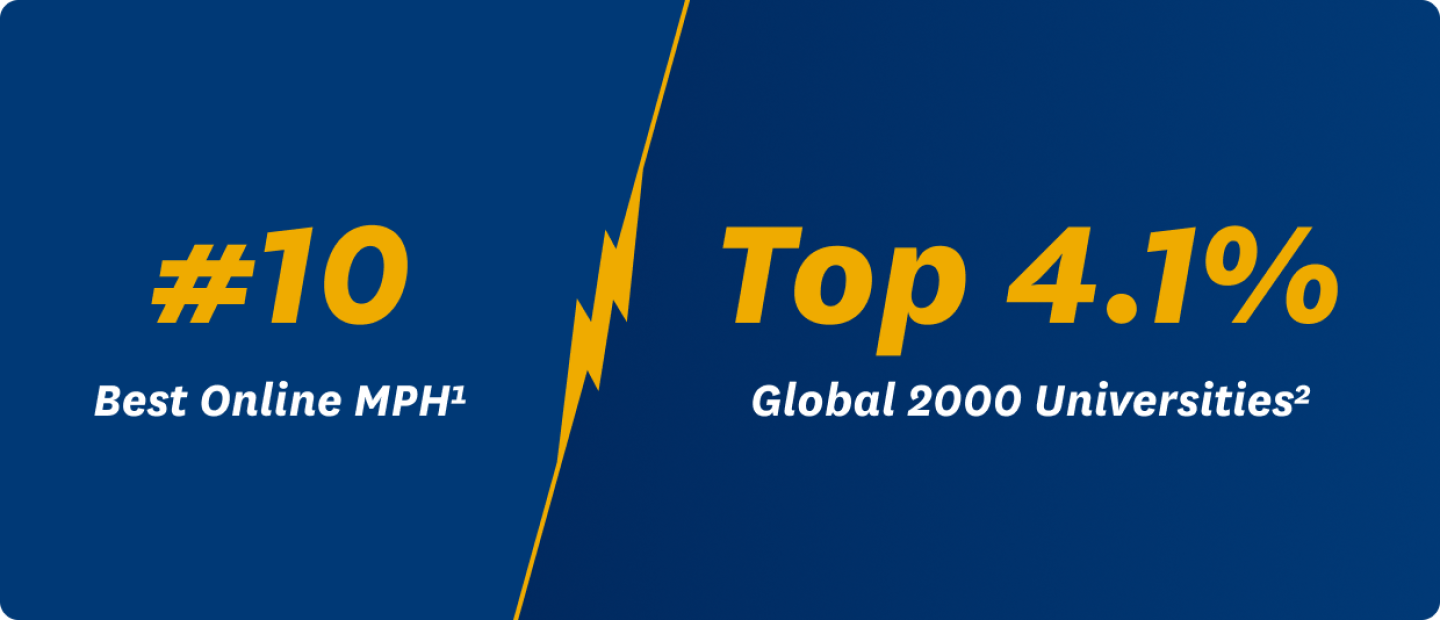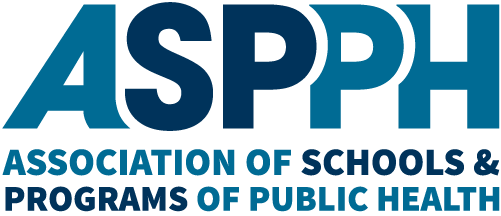Earn Your Master of Science in Clinical Epidemiology Online
Become a force in the quest to understand, prevent and treat diseases through life-saving research. Kent State University’s STEM-designated Online MS in Clinical Epidemiology program equips you with sophisticated research methods and biostatistical expertise essential to clinical discovery. You'll develop the analytical skills that power evidence-based medicine and prepare for a rewarding career at the research epicenter of public health.
Program Snapshot
- 100% online course delivery
- Annual start date each fall
- Focused 15-week courses
- No GRE required
- Complete your degree in as few as 24 months
Benefits of a STEM-Designated Program
STEM-designated public health programs offer key advantages:
- Extended OPT for international students: Up to 36 months of Optional Practical Training (OPT), giving additional time to gain U.S.-based work experience after graduation
- In-demand skills for domestic students: Training in data analysis, quantitative methods, and technical skills valued across public health fields
- Rigorous, analytical focus: The STEM designation highlights the program’s emphasis on evidence-based, data-driven approaches to public health challenges.
Recognized for Excellence
Ranked in the top 4.1% of world universities,1 Kent State University is also proud to be recognized for the outstanding service we provide to the military community with the Military Friendly Gold Designation.
The Council on Education for Public Health (CEPH) and the Association of Schools and Programs of Public Health (ASPPH) accredit our online MS in Clinical Epidemiology, ensuring adherence to the highest educational standards. This accreditation, combined with our Quality Matters certification, reflects our commitment to excellence in online public health education.

Build the Career You Want
Take your career to a higher level with Kent State’s affordable, flexible undergraduate and graduate public health programs. Our 100% online programs allow you to keep up with your current responsibilities while you study. Find out how these programs can help you create the career and positive public health impact you want to have.
Download our guide to learn more about:
- Career Opportunities
- Customizing Your Degree
- The Student Experience
- Admission Requirements
- Tuition and Financial Aid
Download Program Brochure
This will only take a moment.

Committed to Your Success
You’ll thrive at Kent State thanks to uniquely personalized instruction, tutoring and applied practice experience support. The close-knit learning environment, small class sizes, robust online student portal and dedicated faculty help you build the professional connections and competencies that define successful public health careers.
- Dedicated tutoring support for your biostatistics courses ensures your mastery of essential analytical skills
- Faculty mentors work closely with you to secure applied practice experiences aligned with your career goals
Master of Science in Clinical Epidemiology Program Overview
The program begins with core knowledge of theoretical and ethical frameworks, along with up-to-date information on statistical analysis, and study design and implementation.
Customize your degree with a selection of electives on topics including:
- Scientific writing
- Regulatory affairs
- Pharmacoepidemiology
- Epidemiology of chronic diseases
- Epidemiology of infectious diseases
You may also pursue individual investigation on a subject of interest before solidifying your knowledge through a clinical research practicum or thesis.
Coursework will prepare you for key roles in clinical trials and research, including advanced observational and experimental study design methods.
You’ll graduate able to:
- Conduct patient-oriented research to understand and modify health outcomes
- Design and carry out epidemiological studies
- Analyze clinical data and understand the sources, strengths and limitations of patient data
- Design and carry out clinical trials
- Describe disease prognosis, therapies and outcomes
The scope of work for epidemiologists is broad, with variations across employer types, including:
- Public health agencies
- Research institutions
- Advocacy organizations
- For-profit companies
Clinical Epidemiology graduates often pursue careers as:
- Research scientists
- Data scientists
- Clinical research coordinators/managers
- Clinical trial managers
- Clinical data analysts
- Research associates
- Epidemiologists
Already Working in the Field?
Our online Graduate Certificate in Clinical Research can serve as a direct pathway to the MS in Clinical Epidemiology, with certificate credits fully applicable toward your master's degree.
Rapid Expansion Means Growing Career Opportunities
16% Projected Job Growth for Epidemiologists, 2024-2034: Much Faster Than the National Average2

Specialized skills yield big rewards. Yours can save lives.
With an MS in Clinical Epidemiology, you'll qualify for research-focused positions that advance medical science—and offer attractive salaries:
We Do More for You
Kent State’s public health programs are already competitively priced. In addition, you may be eligible for scholarship support.

Courses
The 36-credit-hour MS in Clinical Epidemiology degree comprises three components:
- Eight major requirements (25 credits)
- Two to three major electives (6-9 credits)
- One capstone requirement (3-6 credits)
Major Requirements (8 Courses, 25 Credits)
BST 52019 BIOSTATISTICS IN PUBLIC HEALTH (3 CREDITS)
BST 63013 EXPERIMENTAL DESIGNS IN PUBLIC HEALTH RESEARCH (3 CREDITS)
BST 63014 APPLIED REGRESSION ANALYSIS OF PUBLIC HEALTH DATA (3 CREDITS)
EPI 52017 FUNDAMENTALS OF PUBLIC HEALTH EPIDEMIOLOGY (3 CREDITS)
EPI 63018 OBSERVATIONAL DESIGNS FOR CLINICAL RESEARCH (3 CREDITS)
EPI 63019 EXPERIMENTAL DESIGNS FOR CLINICAL RESEARCH (3 CREDITS)
EPI 63020 ADVANCED EPIDEMIOLOGY AND CLINICAL RESEARCH METHODS (3 CREDITS)
EPI 63021 ETHICAL ISSUES IN PUBLIC HEALTH AND CLINICAL RESEARCH (3 CREDITS)
Major Electives (2-3 Courses, 6-9 Credits)
EPI 50015 SCIENTIFIC WRITING FOR CLINICAL RESEARCH (3 CREDITS)
EPI 50017 PHARMACOEPIDEMIOLOGY (3 CREDITS)
EPI 50018 REGULATORY AFFAIRS IN CLINICAL RESEARCH (3 CREDITS)
EPI 50196 INDIVIDUAL INVESTIGATION IN EPIDEMIOLOGY (1-3 CREDITS)
EPI 63014 EPIDEMIOLOGY OF CHRONIC DISEASES (3 CREDITS)
EPI 63015 EPIDEMIOLOGY OF INFECTIOUS DISEASES (3 CREDITS)
Clinical Epidemiology Capstone Requirement (Choose from the following)
EPI 63192 RESEARCH PRACTICUM IN CLINICAL EPIDEMIOLOGY (3-6 CREDITS)
EPI 63199 THESIS I (6 CREDITS)
Course Requirements
To participate in this online program, you will need a computer and broadband Internet connection. Your program may have further requirements that include the ability to record video and audio. If you have questions regarding technology requirements for the program, please contact your admissions outreach advisor at onlinedegrees@kent.edu or call us toll-free at +1 844-234-4073.
Once you are admitted to the program, your student success coordinator will craft your personalized degree plan, giving you a clear course sequence and path to graduation.*
*Students are responsible for taking courses in the prescribed sequence. Any deviation from the prescribed sequence that leads to a delayed graduation is the responsibility of the student.

Fascinated by the Big Picture?
If you’re intent on addressing broad public health challenges in diverse settings, including health care administration, public policy and advocacy, the online Master of Public Health in Epidemiology may be the path for you.
Have questions? We have answers.
Choosing the right online program comes with lots of questions, and our admissions outreach advisors are here to help you sort through them all. Connect with this friendly, knowledgeable team for personalized guidance. They’ll make sure you have everything you need to feel confident about your next steps at Kent State.

Admissions and Application Deadlines

- Retrieved on August 28, 2025, from cwur.org/2025.php
- Retrieved on August 28, 2025, from bls.gov/ooh/Life-Physical-and-Social-Science/Epidemiologists.htm
- Retrieved on August 28, 2025, from payscale.com/research/US/Job=Research_Scientist/Salary
- Retrieved on August 28, 2025, from bls.gov/ooh/life-physical-and-social-science/epidemiologists.htm
- Retrieved on August 28, 2025, from payscale.com/research/US/Job=Senior_Biostatistician/Salary
- Retrieved on August 28, 2025, from payscale.com/research/US/Job=Senior_Data_Scientist/Salary





